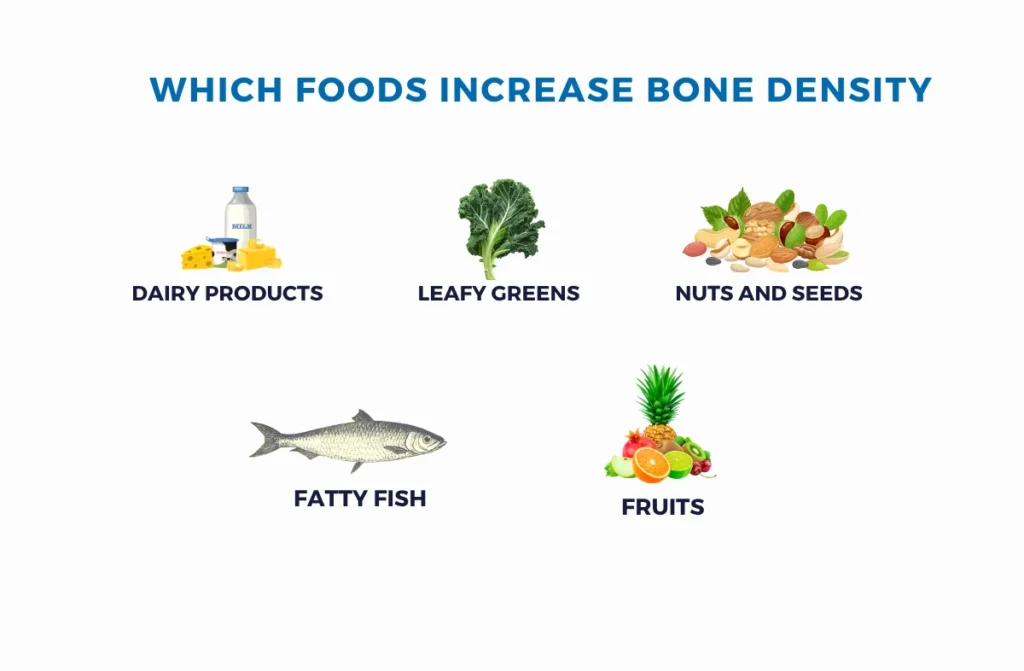How to improve bone health is a question that everyone, regardless of age, should think about. Your bones are the foundation of your body, supporting movement, protecting organs, and storing essential minerals. Unfortunately, many of us don’t focus on bone health until it’s too late. In this article, I, Dr. Omer Sheriff, will guide you on what supports bone health, how to improve bone health in women and men, and why bone health is important for everyone.
Why Is Bone Health Important?
Our bones are much more than structural supports—they’re living tissues that constantly change and adapt to our body’s needs. Understanding why bone health is important can help you take steps to maintain strong bones throughout life.
Why Bone Health Is Important
- Bones protect vital organs like the brain, heart, and lungs.
- They serve as the body’s mineral bank, storing calcium and phosphorus.
- Weak bones can lead to fractures, limited mobility, and serious conditions like osteoporosis.
What supports bone health? Proper nutrition, regular exercise, and healthy lifestyle choices are crucial. For women, knowing how to improve bone health in women is especially critical, as hormonal changes during menopause can accelerate bone loss. Taking early action ensures your bones stay strong and resilient for years to come.

What Affects Bone Health?
Several factors influence bone health, many of which are within your control. Let’s explore these factors to understand how to improve bone health effectively.
- Age
As we age, our bones naturally lose density. This process starts in our 30s and accelerates in older age, making bones more susceptible to fractures. - Hormonal Changes
Hormones like estrogen in women and testosterone in men play a key role in maintaining bone density. Hormonal imbalances or menopause can weaken bones significantly. - Dietary Deficiencies
A lack of calcium, vitamin D, or other essential nutrients deprives your bones of the building blocks they need to stay strong. - Lifestyle Choices
Smoking, excessive alcohol consumption, and a sedentary lifestyle are detrimental to bone health.
Dr. Omer Sheriff emphasizes that understanding these factors can help you make informed choices about how to improve bone health and maintain a high quality of life.
What Supports Bone Health?
Supporting your bone health involves making daily choices that strengthen and nourish your bones. Here are some practical tips:
- Calcium-Rich Diet
Calcium is the cornerstone of bone health. Foods like milk, cheese, yogurt, and fortified plant-based alternatives are excellent sources. - Vitamin D
Without vitamin D, your body cannot absorb calcium effectively. Spend 15–30 minutes in sunlight daily or consume foods like fatty fish and fortified cereals. - Regular Exercise
Physical activity, especially weight-bearing and resistance exercises, stimulates bone formation. Walking, jogging, or lifting weights are excellent ways to boost bone health. - Avoid Bone-Damaging Habits
Smoking and excessive alcohol consumption can weaken bones over time. Limiting these habits is essential to protecting your skeletal system.
By following these steps, you’ll understand not just what supports bone health but also how to improve bone health in practical, sustainable ways.
Bone Health in Women
Bone health in women is essential for maintaining strength, mobility, and overall quality of life. Women, in particular, are more prone to bone-related issues like osteoporosis and fractures due to hormonal changes, especially after menopause. By taking proactive steps, you can significantly improve bone strength and health. Dr. Omer Sheriff shares tips and advice on maintaining optimal bone health in women.
11 Ways to Increase Bone Density Naturally
If you’re looking for natural ways to improve bone health, these strategies are effective and easy to implement:
- Weightlifting and Strength Training
Resistance exercises like squats, lunges, and weightlifting improve bone density by promoting bone growth. - Eat More Vegetables
Vegetables like broccoli, kale, and spinach are high in calcium and antioxidants, which protect bones from damage. - Consume Calcium Throughout the Day
Instead of taking one large dose, spread your calcium intake across meals to maximize absorption. - Eat Foods Rich in Vitamins D and K
Vitamin D helps your body absorb calcium, while vitamin K helps lock calcium into your bones. - Maintain a Healthy Weight
Being too thin or overweight puts stress on your bones, increasing the risk of fractures. - Avoid Low-Calorie Diets
Diets that are too restrictive can lead to nutrient deficiencies, weakening your bones over time. - Eat More Protein
Protein is vital for bone repair and growth. Include lean meats, beans, and eggs in your diet. - Include Omega-3 Fatty Acids
Foods like salmon, walnuts, and flaxseeds are rich in omega-3s, which reduce bone inflammation. - Get Enough Magnesium and Zinc
Nuts, seeds, and whole grains are great sources of these essential minerals for bone health. - Quit Smoking
Smoking reduces bone density and increases fracture risk. Quitting is one of the best ways to protect your bones. - Limit Alcohol Consumption
Drinking heavily can interfere with calcium absorption, weakening your bones. Stick to moderate levels to maintain good bone health.
Which Foods Increase Bone Density?What you eat plays a significant role in improving bone density. Here’s a list of bone-friendly foods recommended by Dr. Omer Sheriff:
- Dairy Products: Milk, cheese, and yogurt are calcium-rich and easily accessible.
- Leafy Greens: Vegetables like spinach, kale, and collard greens are loaded with vitamins and minerals essential for bones.
- Nuts and Seeds: Almonds and sesame seeds provide calcium, magnesium, and healthy fats.
- Fatty Fish: Salmon and sardines are rich in vitamin D and omega-3 fatty acids, both of which support bone health.
- Fruits: Citrus fruits and berries are high in vitamin C, aiding in collagen production for bone strength.
Including these foods in your daily diet is an easy way to improve bone health naturally.
Why Bone Health Is Important for Women
Women are more likely to suffer from osteoporosis due to hormonal changes during menopause. Knowing how to improve bone health in women is crucial for reducing these risks. Dr. Omer Sheriff suggests that women:
- Focus on calcium and vitamin D intake from an early age.
- Engage in strength training to build bone density before menopause.
- Regularly check bone health with scans to catch any issues early.
These steps are essential for women who want to maintain strong bones and live an active, pain-free life.
Conclusion
How to improve bone health is not just a medical question—it’s a lifestyle choice. By taking small but consistent steps like eating nutrient-rich foods, staying active, and avoiding harmful habits, you can protect your bones and ensure they remain strong for years to come.






